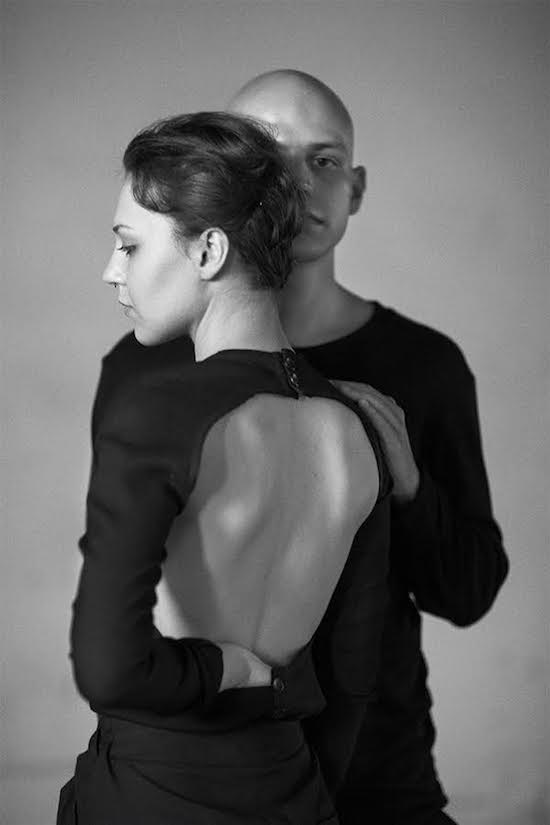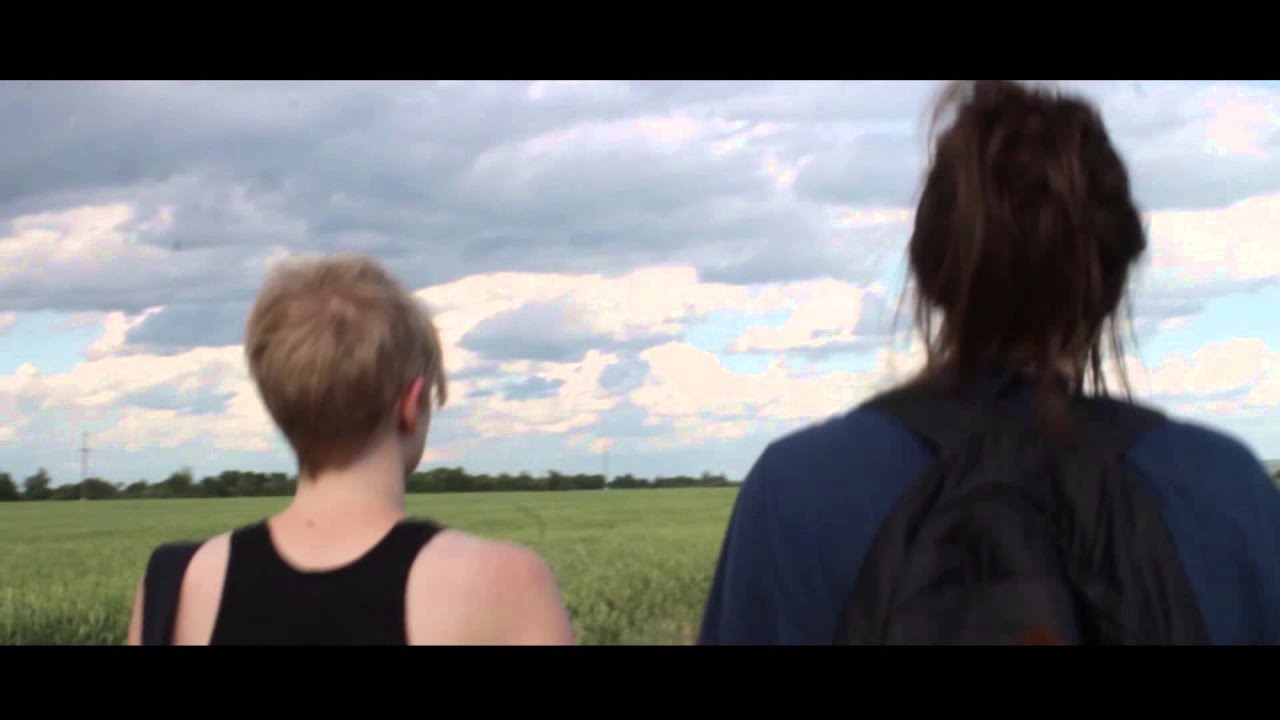Whatever they do, Love Cult never seem to be tranquil. For the duo of Anya Kuts and Ivan Afanasyev hailing from Petrozavodsk, a small city as often named "the punk capital of Russia" as compared with Twin Peaks, the quantity of both underground guitar bands and misty woods is neither relief nor obstacle. Kuts and Afanasyev’s ethos of hard work and eliminating borders has resulted in them putting out 50 releases on their label Full Of Nothing (take a listen to their sixth anniversary compilation here). The pair have always been very active in many different roles – not only as label owners, but also as lecturers, curators of a series of local concerts with international artists Secret Chamber, hosting parties in Moscow and more, not to mention Afanasyev working as an interpreter at last year’s CTM Siberia. But, first and foremost, Love Cult are brilliant musicians.
Since the late ’00s, their sound evolved from free-folk rhapsodies to multi-genre electronic music that is structured, sparse, at once austere and impulsive. Tracks on their latest release, Wonderland, remain reticent even when high-speed: the beat starkly stops when it’s just the right time to start dancing, and, with the addition of impenetrable, icy vocals, you’d be inclined to think that they intentionally wrong-foot the listener. This combines with a constant across all of the band’s releases: the sense that their music could be composed and recorded only in an eternal, raging blizzard, as furious as the one from which The Hateful Eight‘s bounty hunters hide, to the point where the music absorbs this ferocity.
Now, before they head to Berlin to play CTM Festival next month, we talk to the duo, as well as director Alina Filippova, with whom they’ll be performing in a special programme, Nada.
In a few interviews you’ve said that nowadays, in your opinion, we live in "the most interesting time for music". What is it that you find especially interesting?
Love Cult: Think of the position of an artist in society. The model of show business as a ‘facade-person’ with shadow management seems outdated. We are seeing more and more self-sustainable artists, we can observe them build themselves, make mistakes, learn to be better, fail and try again, develop, try new forms and eventually retire or give up. Just take Grimes, and examples are everywhere. Music as show business kind of dies. The music industry is a one-legged mutant, yet music is super important right now. So we come to the question – what is music really? Organised sounds. And fuck, they are organised in pretty intriguing ways right now! It’s stimulating. When you see kids exploring Tom Zé and Japanese grime and playing hardcore punk at the same time, the music world we saw 15 years ago seems like a tin can.
What was your motivation for starting Full Of Nothing?
LC: We’d already been touring and playing with Love Cult for a year before starting Full Of Nothing. The main impulse, you know, ‘sharing is caring’. We heard some good tunes from friends but we weren’t bloggers, so we started a label and burned some CD-Rs and sent them around. And then made some tapes. And here we are, six years later, with 50 releases. Hopefully the artists are doing better than if they self-released this music. Means it makes sense.
When you’d only just started playing music, you followed the approach of "everything has to occur spontaneously and acoustically". Has this remained the same? Do you prefer following instructions that you’ve previously come up with or are your tracks created purely live?
LC: We’ve gone pretty far from the spontaneous, improv-style sets. Yet we’re never comfortable with the concept of ‘delivering the goods’ – playing the tracks as they appear on the records or playing up to people’s expectations. The can expect some personal exploratory music with a bit of singing, so technically we don’t fail them. Currently in the studio we’re working on song- and rhythm-based material, but when we play live we improvise on these structures. So the tracks can grow, shrink, attack and soothe. But essentially, these are the songs and rhythms we believe in. This working model is a result of many conversations between the two of us, it’s not something that just happened.
Regarding the electronic/acoustic division – it makes no sense to differentiate means of expression. Decent ideas will find their way. Forgettable stuff will fade away. Right here and right now we wouldn’t know what to do with an acoustic guitar. But tomorrow, who knows?
Is it important for you to see yourself in the context of the Russian electronic scene? Or as part of something larger?
LC: Frankly, we never considered ourselves a part of the Russian scene in the big sense until two years ago. We kind of got acquainted with it, but our audience and mates – it’s a bubble. The artists we’re teaming with – Moa Pillar, HMOT, Suokas, etc. – we’re all outsiders and globalists. And we consider these folks just as influential as our British or German comrades. It’s not geo-centric. It’s super important to play in Moscow and it makes sense logistically, but the music is not aimed at Russians or Muscovites. We can’t say Russia offers more inspiration, it’s merely a small fraction of the world. It’s okay. But Lebanon and China and NYC are equally intriguing – perhaps even more so!
Could you tell us more about Nada? Why are you going to CTM with this exact programme?
LC: It was a CTM initiative, actually. They were interested in Love Cult and one of the curators really liked the music videos Alina did for us and suggested we should involve her, go beyond a live show. So the three of us came up with Nada. Generally videos are considered "set in time" – once a film is finished, that’s it. And the whole VJ/interactive culture is very far from cinematic values, which we adore. Since we mainly improvise on pre-made structures we suggested that Alina do the same, using her footage but editing a film in real time. Technically it’s organised as a VJ-set but it’s not short loops mangled with endless effects. It’s like a film but put together on the fly. Much like the way we play songs live.
Alina Filippova: It’s something like VJing, but it’s not VJing – more AV. Maybe later someone will come up with a more appropriate name. Nada is a one-hour movie and music will become its narrative structure. The common style remains the same from our previous works – ‘This Good’ and ‘Wonderland’. It’s intuitive. The movie is currently in progress, and I don’t know what it’s going to be about. I wouldn’t like to define some exact meaning – let it be the energy which you can live with for a few minutes.
What seem to you to be the main problems of the scenes in Russia and Petrozavodsk?
LC: Russia – white middle-class boys in their twenties playing boring generic shit with the latest devices marketed to them via hip foreign websites. Each has three monikers, all solo projects. No exploration, no beliefs, no real interest in culture, no cooperation. A copy and paste-type of scene. Thank god we have Phurpa and academia – Martynov, et al – and other smaller clusters…
With Petrozavodsk, everyone is so busy being ‘punk’, they forget what music really is. Lots of useless machismo, too.
As musicians, do you care that your other activity may influence the way people perceive your music and other projects? And how important for you is to to play live shows as Love Cult, not DJ sets or projects like Nada?
LC: Live shows are a priority. That’s the mode we’re good at. So far DJing and collaborative projects seems more like experiments, but who knows where this will lead us. For Russians it’s probably hard to differentiate the image from the music. Just like we don’t judge Putin for his political decisions, we kind of seem to care for the overall concept of his philosophy, blah blah blah. Most of the foreign listeners couldn’t care less for events we organise in Moscow, they come to the show out of interest, they pay attention to the music and aesthetic. Distance is a beautiful thing.
Earlier you were talking about Petrozavodsk mostly in terms of "a frozen loneliness vibe", but Ivan recently put up a post on Facebook about 2015 saying: "Living in Karelia [the Russian republic of which Petrozavodsk is the capital] was hell. Fuck you sexist, ageist, racist half-wits with village mentality. Thank you those 4-5 people who care about us, you know who you are. On the other hand forest walks really grew on me lately and I couldn’t dream of a better place to do that." Has it changed over time?
LC: We’re quite spoiled so we expect a lot from people. That comes with being self-demanding, too. Karelia is amazing to raise kids in, it’s cool to do sports and camp here. But making exploratory art is not for this place, perhaps. You wouldn’t see Vladislav Delay play live in Hailuoto, Finland, right? He would travel to Berlin, right? But having a studio in the forest is cool.
There are some troubling tendencies in the Russian mentality that are hard to deal with. Obsessive patriarchy, ageism, some talks about "white race" and "great empire" – those are some of the things we’ll never tolerate. Such an attitude is slightly more noticeable in smaller towns – it’s a bit hard to deal with, but it’s understandable.
Wonderland is out now on Full Of Nothing. Love Cult play CTM Festival in Berlin, which runs from January 29 to February 7; for full details and tickets, head here



